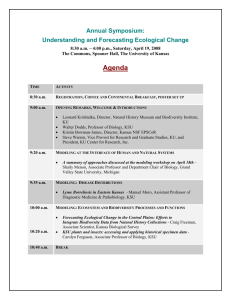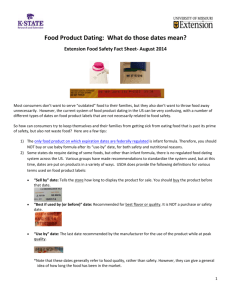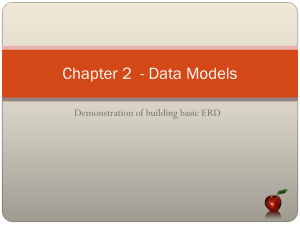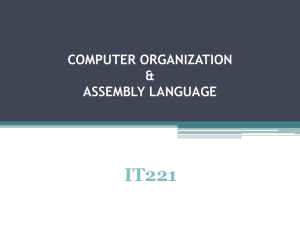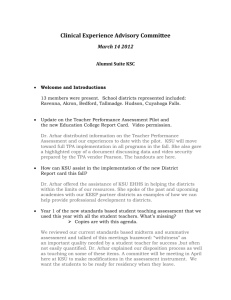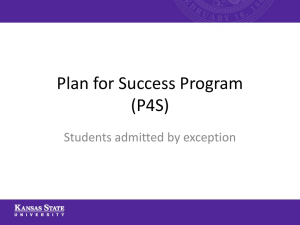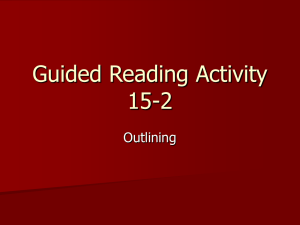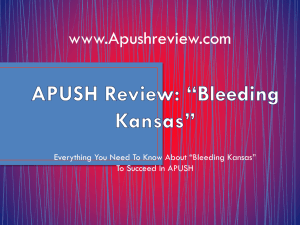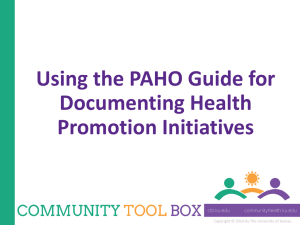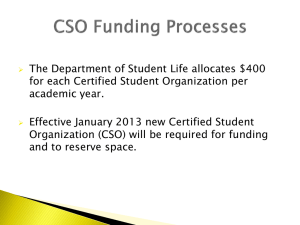Updated on Accounting Pilot and Bridge Project with the Pathways
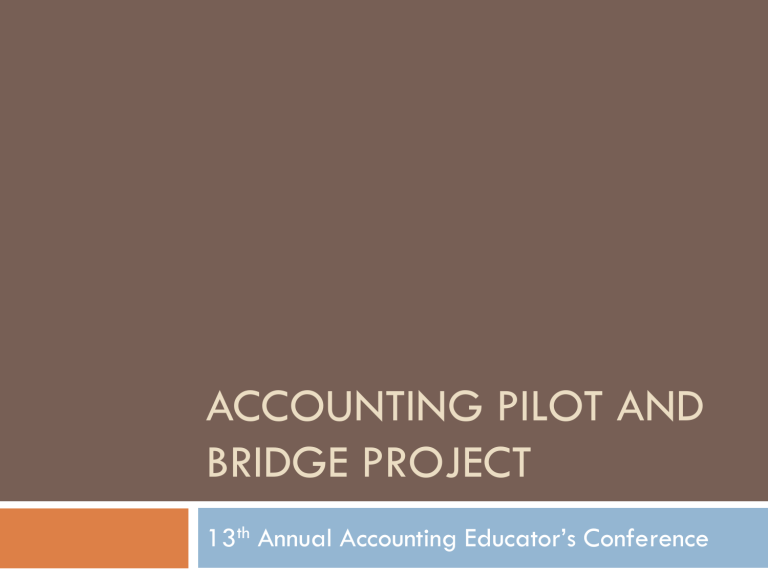
ACCOUNTING PILOT AND
BRIDGE PROJECT
13 th Annual Accounting Educator’s Conference
Just the Facts
More than 50% of CPAs in practice will retire in the next ten years.
Other professions (medicine, law, engineering, etc.) will also experience dramatic declines in their membership in the next 10 years.
The number of high school graduates will decline in the next ten years.
All professions will be competing for a declining supply of talented students.
The College Board’s Advanced Placement Curriculum has access to the largest number of high quality students in the United States. (About 1.99 million students in 2011 took AP Exams and more students were in AP classes but did not take the AP exam.)
There is a strong correlation between students who take technical AP classes (math and sciences) and their subsequent enrollment in similar courses in college.
No accounting organization has a formal or informal relationship with the College
Board’s Advanced Placement system.
Existing high school accounting classes are designed to prepare students for jobs after high school and not for college level accounting courses.
There is no systemic link between high school accounting teachers and college/university accounting programs.
There are no AP classes in any business discipline, but 33 in math, science, and other liberal arts subjects.
2000 AICPA Report
(Taylor Research & Consulting Group)
Report indicated the AICPA faced the challenges of student perceptions and systemic barriers in changing these negative perceptions
According to the Taylor Report, the research suggests that since many of the accounting courses currently offered by high schools are remedial in nature, they do not create the type of interest necessary to increase the number—and quality—of accounting majors.
For instance, one student, when asked why s/he did not take accounting in high school, stated, “There weren’t any AP classes in accounting. Those (accounting) courses (offered) were for secretaries.”
To compound this problem in Kansas (and other states) student who take an accounting class and get an A will actually have their overall grade point decline because accounting classes are negatively weighted due to their vocational classification. In addition, accounting classes are not considered college prep courses and do not count toward college admission.
2000 AICPA Report
(Taylor Research & Consulting Group)
The challenges of student perception include ignorance, misinformation, and negative perceptions:
Student Ignorance: Most high school students have limited knowledge of an accounting career.
Misinformation: Information regarding accounting is limited or faulty. For example, some students see accounting as limiting (rather than expanding) their future career choices and associate accounting with bookkeeping and therefore do not view accounting as a course or a career for “good students.”
Negative Perception: Students view accountants performing boring, tedious, and monotonous number-crunching by themselves. The data in the Taylor Report suggests that students are not choosing accounting as a career because their interests (and values) lie elsewhere.
Questions for Our Profession
Given the coming competition by all professions for the best students, will the accounting profession be able to attract quality students to its supply chain?
Is it realistic to assume current high accounting enrollments will continue for the next ten years?
Why has the accounting profession and accounting educators not developed a systemic link to the single largest pool of intellectual capital in high school?
If collegiate engineering, math, and arts and sciences programs around the United States (and growing worldwide) have participated in Advanced Placement for nearly 50 years, why has accounting and business not sought access to these students?
Training Team
PRIMARY GOAL: To get the College Board to adopt accounting as part of their Advanced Placement (AP)
Curriculum.
Dr. Dan Deines – Kansas State University
Dr. Kimberly Church - UMKC
Joe Navickas – Deerfield, Illinois
Glenda Eichman – Manhattan, Kansas
Sean Crevier – Vernon Hills, Illinois
Janie Patterson – Hutchinson, Kansas
Alison Nord – Kalamazoo, Michigan
Training Sessions
What Trainees Get:
*Immediate implementation of college accounting curriculum
*Chance for students to earn up to 6 fully transferable college credits
*Continued support / contact with the trainers throughout the year
*Fully packaged, ready to go, start to finish curriculum
*Daily lesson plan / pacing guide for the entire school year
*Daily assignments and pre-written exams with keys
*Notes / formula guides / PowerPoints for every chapter
*A free copy of the text
*Access to the online text teacher resources
Kansas State’s Accounting Department Example
(1) Students who receives a 90 or better on the Qualifying Exam
Enroll at KSU, receive an A and credit for KSU’s first accounting course (Accounting for Business Operations)
Can enroll in the second introductory accounting course (Accounting for Investing and Financing) as a first semester freshman.
(2) Students who receive a score from 85 to 89 on the Qualifying Exam
Enroll at KSU, receive a B and credit for the first introductory accounting course and have the enrollment options described above.)
Can enroll in the second introductory accounting course (Accounting for Investing and Financing) as a first semester freshman.
Students in the program have a significant head start in KSU’s accounting program and can spread their accounting courses over their entire undergraduate experience rather than packing their upper level courses in the last two years.
High quality students have a broader educational experience throughout their undergraduate experience.


